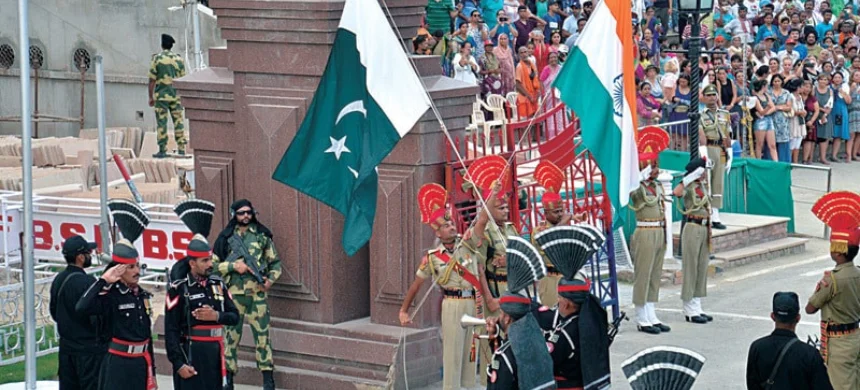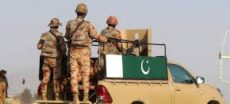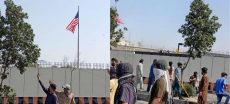The Wagah Border will be closed to the public for this year’s Independence Day parade and flag-lowering ceremony due to ongoing renovations at the Bab-e-Azadi (Gate of Freedom). This iconic site on Pakistan’s eastern frontier, where Muslim caravans entered the newly formed country in 1947, will have restricted access during the event.
Historically, the Wagah Border, named after the last village on Pakistan’s eastern boundary, became an international frontier on August 17, 1947, following the Radcliffe Boundary Award. The Bab-e-Azadi, constructed to commemorate the migration of Muslim refugees from India, features a prominent portrait of Quaid-e-Azam Muhammad Ali Jinnah facing India and walls depicting scenes from the 1947 migration.
Read More: An Independence Night Parade will be held today at PMA Kakul, with the COAS as the chief guest
Renovations, initiated in February 2024 by Punjab’s caretaker government, include significant upgrades to the Bab-e-Azadi and surrounding facilities. The redesign will mirror the Alamgiri Gate of Lahore’s Shahi Qila, with the addition of large LCD screens for enhanced viewing. The parade ground will be expanded to accommodate approximately 18,000 spectators, and the parking area will be enlarged. Once completed, the Bab-e-Azadi structure will reach a height of about 120 feet.
As a result of these ongoing construction efforts, this year’s Independence Day parade and flag-lowering ceremony will be limited to a select number of guests. The public has been informed of these restrictions through banners displayed at the site. The renovations aim to improve the facilities at the Wagah Border, ensuring a more impressive experience for future visitors once the construction is completed.
Historically, the Wagah Border has been a site of significant events, including the initiation of the joint flag-lowering ceremony by the border forces of Pakistan and India in 1959. In 2017, the site witnessed the hoisting of Pakistan’s largest national flag by then-Army Chief General Qamar Javed Bajwa, which stands 400 feet tall, 120 feet wide, and 80 feet high. The current renovations are set to enhance the site’s grandeur, continuing its legacy as a prominent symbol of national pride and heritage.











